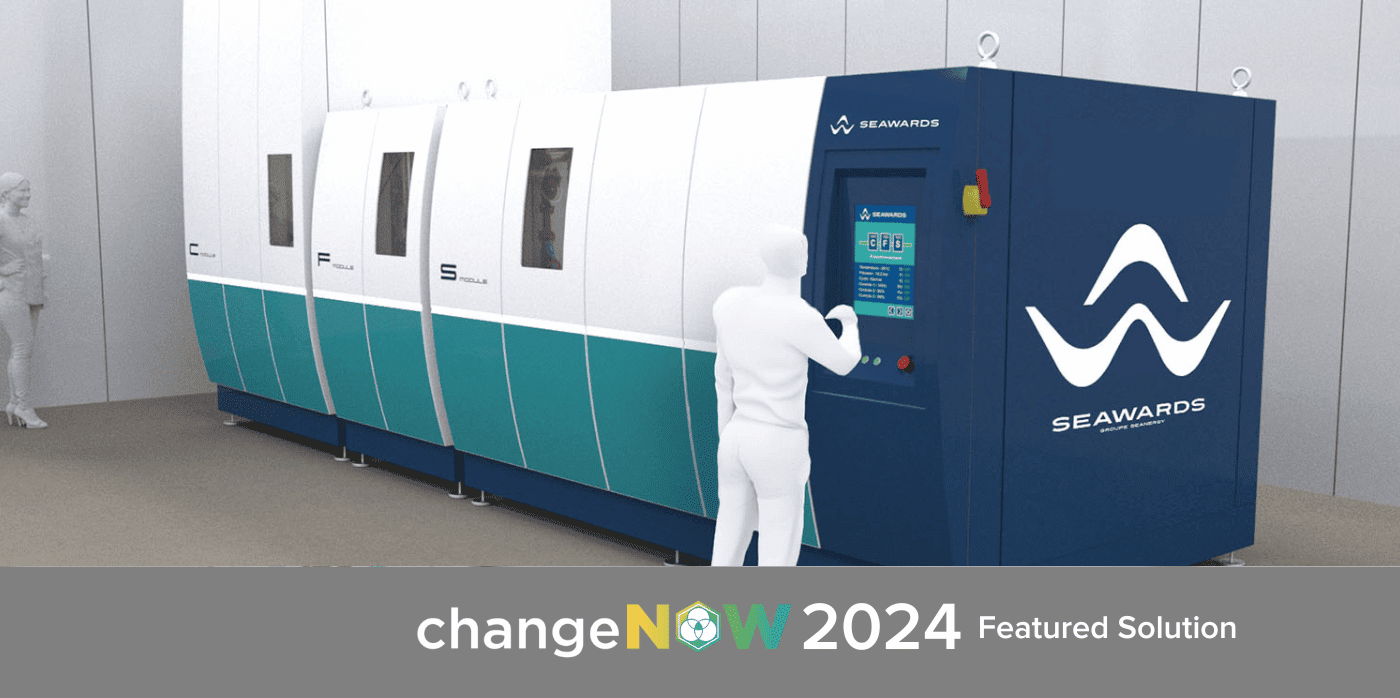
Spotted: Desalination of seawater has the potential to help alleviate the world’s decreasing availability of freshwater. The process, however, is polluting and raises the salt levels of the water in which the plant operates to potentially dangerous levels. Additionally, the most common technique (reverse osmosis) of desalination consumes high volumes of energy.
Approaching the process with a different technology is French technology company Seawards. Seawards uses its patented cryo-separation process to desalinate seawater without any pollution and with much lower energy expenditure. Saltwater freezes at a lower temperature than pure water, and this makes it possible to extract drinkable water during a cooling cycle. This is because crystals of freshwater can be separated and collected while the salty water remains liquid.
Of the water taken into the system, around 10 per cent is turned into potable water, while the remaining 90 per cent is circulated back to the sea. Crucially, the returned water is only slightly more salty than when it entered the system and contains no chemicals, meaning it is non-polluting and can be safely absorbed by the ocean without damaging local ecosystems. This stands in contrast to traditional desalination techniques that produce toxic brine (water with a very high salt content) as a waste product.
Seawards’ team emphasises the global need to democratise access to clean water. It is a goal the company works toward with its agile system, modular design, and elimination of pollutants. And because cryo-separation requires less power than existing techniques, the process is more accessible to smaller communities.
The minimised footprint of the prefabricated infrastructure makes it easy to assemble without substantial construction costs and equipment needs, and depending on the need, the cryo-separation system can also be scaled for greater treatment volumes.
From mobile filtration systems to off-grid solar desalination, Springwise’s library includes a variety of examples of innovators seeking ways to improve community access to potable water.
Written By: Keely Khoury

